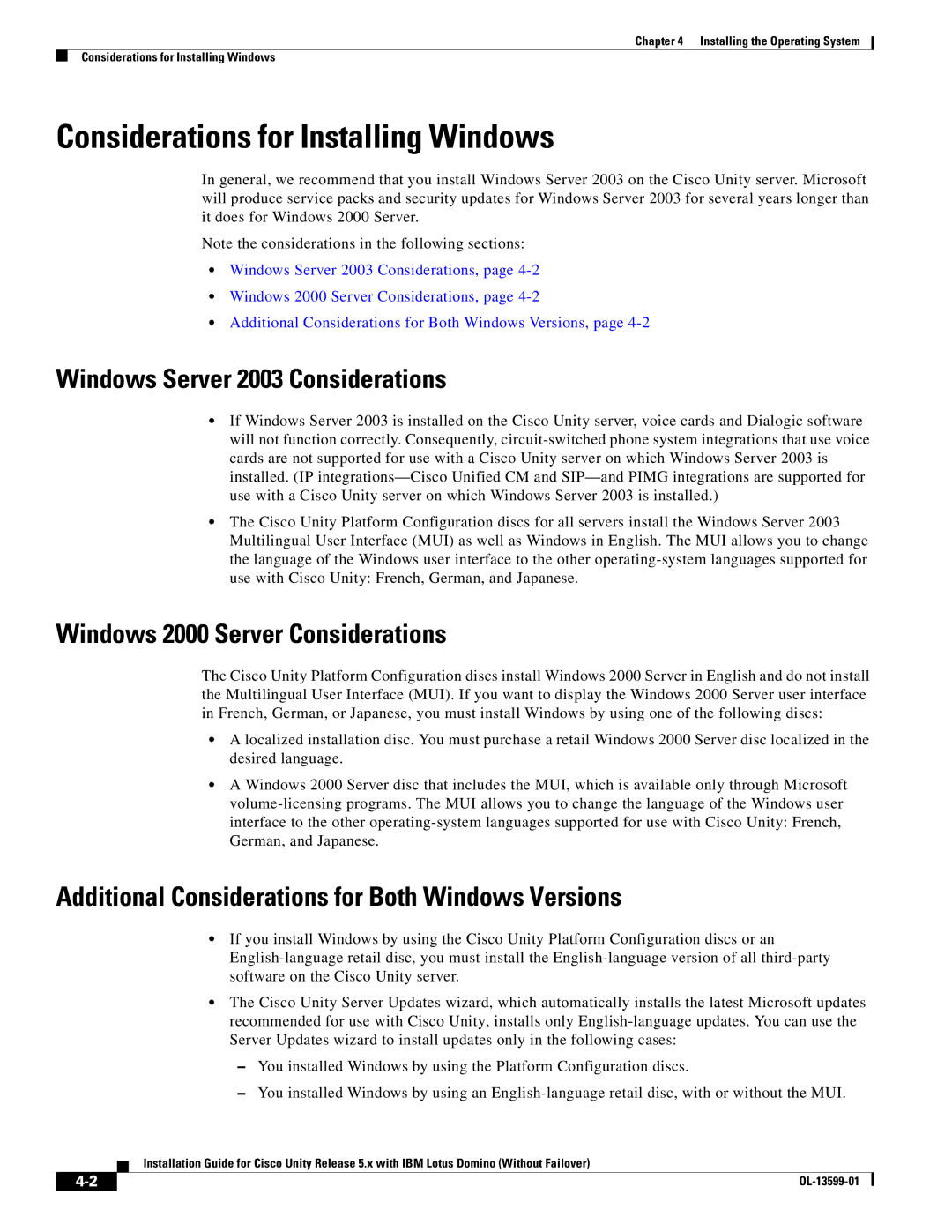OL-13599-01 specifications
Cisco Systems OL-13599-01 is an integral part of Cisco's portfolio of networking equipment, designed to enhance the efficiency and performance of various networking environments. This model is particularly notable for its robust features, cutting-edge technologies, and adaptable characteristics, making it suitable for enterprise-level applications.Main features of Cisco OL-13599-01 include advanced routing capabilities that facilitate seamless data transmission across complex networks. It supports a range of protocols, ensuring compatibility and interoperability with various networking devices. The system is optimized for high throughput, enabling the handling of multiple concurrent connections without compromising performance. Additionally, it offers enhanced security measures, including integrated firewalls, intrusion prevention systems, and advanced encryption standards, which protect sensitive data and safeguard against unauthorized access.
Technologically, OL-13599-01 is built on Cisco's state-of-the-art architecture, allowing for virtualization and automation. This means users can efficiently manage their network resources, deploy applications swiftly, and even automate routine maintenance tasks. The system supports Software-Defined Networking (SDN), which promotes greater flexibility in network management by enabling centralized control over traffic flows and configurations. This technology reduces operational complexity and fosters a more agile networking environment.
Another characteristic of Cisco OL-13599-01 is its scalability. As organizations grow, their networking needs evolve, and OL-13599-01 can easily scale to accommodate increased demands. It supports modular components that allow for easy upgrades and expansions, ensuring the system remains relevant and effective over time. Furthermore, the device is designed for energy efficiency, which not only contributes to sustainability efforts but also reduces operational costs.
In conclusion, Cisco Systems OL-13599-01 stands out as a powerful networking solution that combines robust features, advanced technologies, and versatile characteristics. Its ability to handle high traffic, support various protocols, and provide strong security measures makes it a favored choice among enterprises aiming to enhance their networking infrastructure. With its focus on scalability and efficiency, OL-13599-01 is crafted to meet the dynamic demands of modern businesses, ensuring they remain competitive and resilient in an ever-evolving digital landscape.

